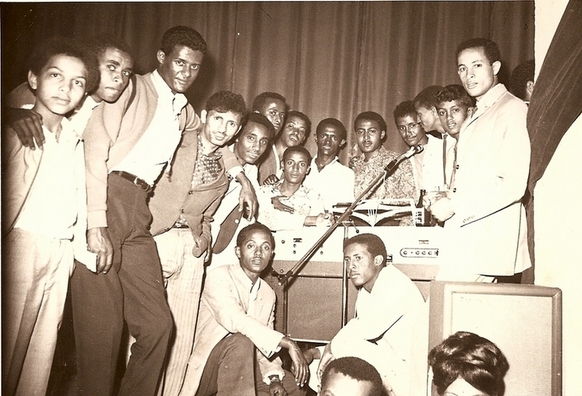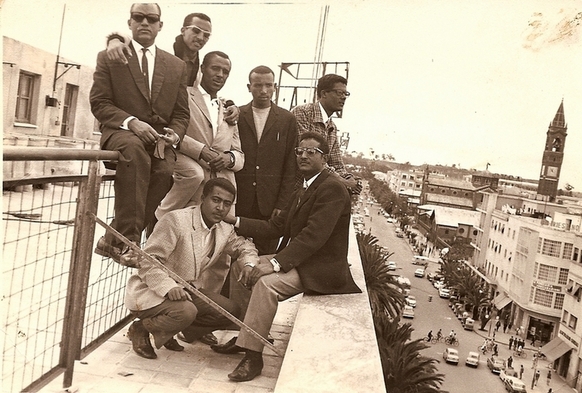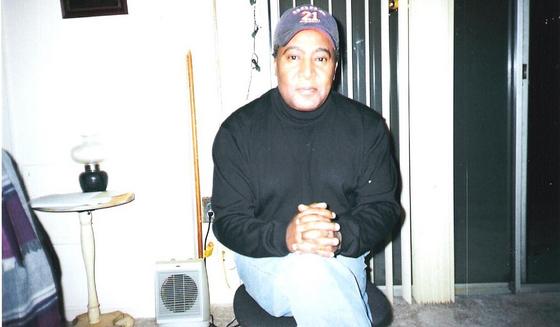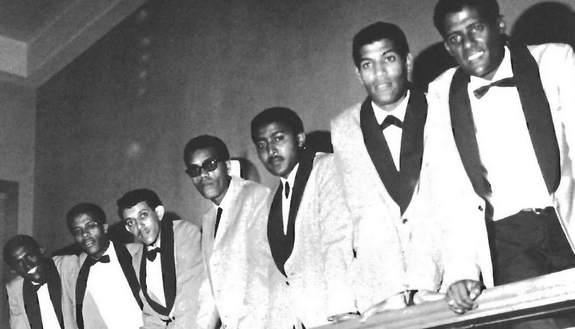Tadias Magazine
By Martha Z. Tegegn
Published: Thursday, August 19, 2010
Washington, D.C. (TADIAS)- The last part of our exclusive interview with Ethiopian music legend Teshome Mitiku features his years abroad, his musician daughter Emila, and his plans to return to Ethiopia in the near future.
The artist, who is set to make a historic appearance at the upcoming Chicago Jazz festival, says he is also planning a trip home in connection with a documentary movie being made about him and his daughter by a German production company. The film entitled “Father to Daughter,” is about the transfer of music from one generation to another.
In last week’s segment, Teshome discussed the tense political climate of the late 1960’s that would eventually force him to abruptly leave Ethiopia for Denmark.
What was the first thing you did when you got to Denmark?
I took a cab from Copenhagen airport, and told the cab driver “Take me anywhere where they have music, club, bedroom and food” (Laughter). The cab driver took me to a place called British Pub. It was cold, there was a hotel and I slept for a while, got up and took a shower and dressed sharp in a nice Italian suit, and then went downstairs to get something to eat. I ordered steak and whisky (Laughter). A few minutes later the band started playing and more people started to come in and the mood was getting better and better. I moved to the bar stool and ordered another whisky. Later, I asked the piano player on the stage if I can sing with the group? They were stunned. Who is this guy? Who does he think he is? Then the piano guy said, “I have to ask the manager first.” I replied “go ahead and ask.” The funny thing is my character had apparently convinced them that I was some sort of royal. I was not aware of it at the moment but I was later to learn that it was not very normal in those days for a sharply-dressed black man to show up in a Copenhagen bar, order a steak and whisky and request to play the piano (laughter). They were not used to it. The manager came and immediatly asked, “Where do you come from, are you a Saudi Arabian prince?” (Laughter). They have never seen a black man dressed like that in their life. I was in a nice Italian suit. The manager said “Ok. Let me ask the band leader.” The band leader was named Stefan. He said “Okay, come on,” so I went up there and did some Nat King Cole song, I think it was Monalisa and about three more songs and people liked it and wanted more. Well, I said okay! Then the lady of the house, the boss, the owner, she came and invited me for a drink and asked me all about myself. I told her that I just arrived that morning from Addis Ababa, Ethiopia. And she asked me, “Would like to continue to play with the group?” I said yes. Then she formally introduced me with the band leader Stefan, who to this day is my great friend. There I was offered a job, free lodging, laundry and food. So I started singing there.
Wow, how long did you stay there?
I played at the pub for about three months. Then we had a show at a nursing college in Malmo, an international city in Southern Sweden. We stayed there for a while and I begun to contemplate to move to Sweden because when I was there I discovered that they have a great music academy in Malmo. I also learned that you have to be fluent in Swedish in order to attend the school. So I applied for language school in Sweden and they accepted me, that’s how I moved to Sweden.
How difficult was it to learn the new language?
It wasn’t difficult. People think language is difficult, but if you are a musician you shouldn’t worry about language. After I studied Swedish things became easier. I started reading the newspaper. I could communicate with people. So I went ahead and applied to the music academy. I took the test. My dream was to be a conductor. They accepted me at the music school. But I changed my mind and enrolled at the University to study sociology and history instead.
What led you to change your gear from music to sociology and history?
I did not leave music but I wanted to study more. I was in a state of mind where I was struggling with several personal questions. It was a transformational period for me. In a way, I was still maturing and still growing up. I have done music but I also wanted to fulfill the high hopes my father had for me in education. My father always emphasized the importance of getting an education. He was a lawyer, he knew law and loved academia. He was dissatisfied with the Ethiopian justice system till the day he died. Our house was made of intellectuals, we talked a lot (laughter).
How was school like for you in Sweden?
I lived in the library for so many years. I would get up 6 AM like a soldier and at 7 o’clock I am at the library reading. I would do that until 12 or 1 pm and take short lunch break and get back and read. I was a good reader. I used to read five to six books a week on all subjects including philosophy, psychology, history, you name it. Books eventually became my friends, my house is full of books. I can not go anywhere without a book. So, I wanted education and knowledge. I wanted to learn everything. Whatever it takes. I remember trying to push myself to understand Albert Einstein’s theory, “ if he can understand it, I sure can,” I would say to myself. I was pushing myself. That part of me still exists.
Does that mean you weren’t playing music then?
Oh no, I was still playing music. In fact, I was part of a 12 piece jazz band and we used to play on weekends in Sweden and even travel to different states. In summer I was playing Swedish polka. So I earned money as well. I also had a full scholarship for my education.
How were you able to balance all that – new culture, language, school, music, life?
It was a lot to process. The Music part was easy, it came naturally to me, it was part of me. However, school was a bit unnatural, out of my tempo, so I had to work harder at it.
What drives you?
What drives me? Curiosity, discovering the unknown drives me. I like being surprised through new knowledge. In my university life I was an A student.
Were you ever homesick? Did you miss Ethiopia?
I longed for Ethiopia. For me she is embedded in my heart. I love her. Yes, I was very lonely and always longed for my country. I would wake up in the middle of the night when everybody is sleeping and walk to the dorm where there was a piano. I would improvise until sun break. That’s how I released my homesickness.
I am going to ask you a sensitive question. Does this mean you haven’t seen your mom since you left forty years ago?
I have not seen my mother since I left Ethiopia, yes. I haven’t seen her, we talk on the phone…but I haven’t seen her and she always…her dream is to see me before anything happens. But, God willing we will probably see each other soon.
Do you plan to go back?
Yes
When?
Sometime soon (laughter). I have certain core principals that I cannot compromise. We have to have mutual respect for our cultural diversity. My wish for Ethiopia is peace, stability and prosperity based on just principals. I have confidence in the new generation.
Well, you are going to be very surprised. For example, your Sefer (neighborhood) Qebena is different. Even the river has dried.
(Laughter) Yes I know, Qebena doesn’t exist in the way I knew it, only Mama. But I will go there, hopefully, soon…
Let’s talk about your daughter Emilia, the Swedish pop singer. You must be proud of her.
I am very proud of her. I have no words to express it. I used to call her my pearl, my life, my everything.
Is she the only one?
Yes, she is the only one. She has given me a reason to live ever since she was born. She is very smart. Emilia speaks five languages French, Swedish, English, German and Spanish fluently. She got the linguistic part form her mom and the music part from me. She is my everything. My pride. We text each other all the time, we communicate often. She is based in Sweden but lives in Germany and Hungary. I wanted her to be a musician. I encouraged it very much. Even when she was a baby I used to play Tchaikovsky and Stravinsky for her. When she was just two years old, I put her on the piano and told her “This is what you will be doing all your life” (laughter). So she fulfilled that dream for me. I clearly remember the night when she won the Swedish Award. It is equivalent to the American Grammy. She won for best singer, best video, best composer of the year. I mean, I was excited. She was in Japan and watching it via satellite. I was here that night. I was so proud and happy. I picked up the phone and called Voice of America and declared that my daughter has done it, just as Abebe Bekila did it for Ethiopia (laugher) . I was so proud!
Does Emilia speak Amharic?
A little bit, yes. She used to go to Sunday school to learn Amharic as a child. But she stoped when her teacher moved to another place. She also used to take piano, and ballet. She was a very busy child.
Does she plan to do a show in the U.S?
Yes, she actually has an album coming up that will be released in the U.S. market. We are also planning an album together.
Why did you relocate to US?
Well, everything with me has to do with music. I came to visit my brother Teddy sometime in the early 90s. When I came here I was shocked. I never thought that such a large number of Ethiopians had migrated to this part of the world. I mean everywhere I went there were Ethiopians. I said to myself, “ What am I doing in Sweden? This is where I need to be. Then I went back to Sweden, discussed my idea with Emilia. I said “now that you are grown, it is time now for papa to go discover life” (laughter). I gave my apartment to a friend and I was gone. As soon as I arrived here, I got involved in a lot of Ethiopian activities, including music, fundraising for different causes. I became socially involved with the community. That kept me going. I am currently working on a CD.
When is that coming out?
Perhaps in December. I would like to get involved with a lot of musicians, both legendary and contemporary and mix it with American music.
You are scheduled to collaborate with the American Jazz band the Either/Orchestra at the prestigious Chicago Jazz festival in September. How did that come about?
The Either/Orchestra had re-recorded one of my songs called Yezemed Yebada and one day I was driving in the area and heard the song on WPFW radio. I am like, what is that? This is my song? So, I pulled over to the side and called the DJ at WPFW. I asked him, “who is the composer of the song?” He read the album and said Teshome Mitiku. I said: “You are talking to him now.” They were pleasantly surprised. I asked about the orchestra and they gave me information about them and the DJ said they were located in Boston. I picked up the phone and called the leader Russ, I told him who I was and eventually we became friends. He called me about a month ago and invited me to join the group for preparation in Chicago and Boston. When I rehearsed with them, it was a great feeling. The band is fantastic. Our show in Massachusetts was sold out. I saw a lot of people there that enjoyed Ethiopian music, friends of Ethiopia and Ethiopians. They loved it. We are now getting ready for the Chicago festival. I am honored to join the band; I am actually going to be doing a couple of more shows and we are talking about more future projects, I am excited.
Is there anything else you would like to share with our readers?
Yes, I would like to mention that a German production company is currently filming a documentary based on my life and Emilia’s entitled “Father to Daughter.” It’s about the transition of music from one generation to another. They are half way done. They came and filmed here. They have also been filming in Europe. Now, they want us to go to Ethiopia to complete the shoot. I plan to go. So that will be my first trip back to Ethiopia since I left four decades ago.
Is your daughter going with you?
Oh yes, but that will not be her first time though. Emilia was in Ethiopia last year. She was in the middle of preparing for the 2009 Eurovision Song competition and she was very nervous about it. So one day she calls me and she says: “Papa I have to go to Ethiopia to get a blessing from my grandmother before the contest. Can you come with me?” I said to her, “I want you to do that. I can’t come with you becasue I am working, but I want you to go.” So she did. She went to Addis Ababa straight to her grandmother’s house and stayed there for a week. So the two women call me up. My mother was crying, Emilia was crying. My mother said to me, “ Teshu now my life is fulfilled. Today is the happiest day of my life.” When Emilia was there she took a photo of my old house, the house I grew up in Qebena. When I saw that picture, it brought back so many memories that I had to write a song about it. It will be in my next album. It is called Enen Ayew (I saw myself).
Thank you so much Tehsome for your time and good luck.
Thank you so much to Tadias for giving me this opportunity to tell my story. You are the very first magazine that I talked to. I really appreciate your magazine and your writers, you guys are great. Tadias is one of my favorite Ethiopian publications. Don’t change anything unless you have to, let it change itself.
—
Related:
Part One: Exclusive Interview With Ethiopian Legend Teshome Mitiku
Part Two: Exclusive Interview With Ethiopian Legend Teshome Mitiku
Listen to Gara Sir Nèw Bétesh – song written by Tèshomé Mitiku and played by Soul Ekos




